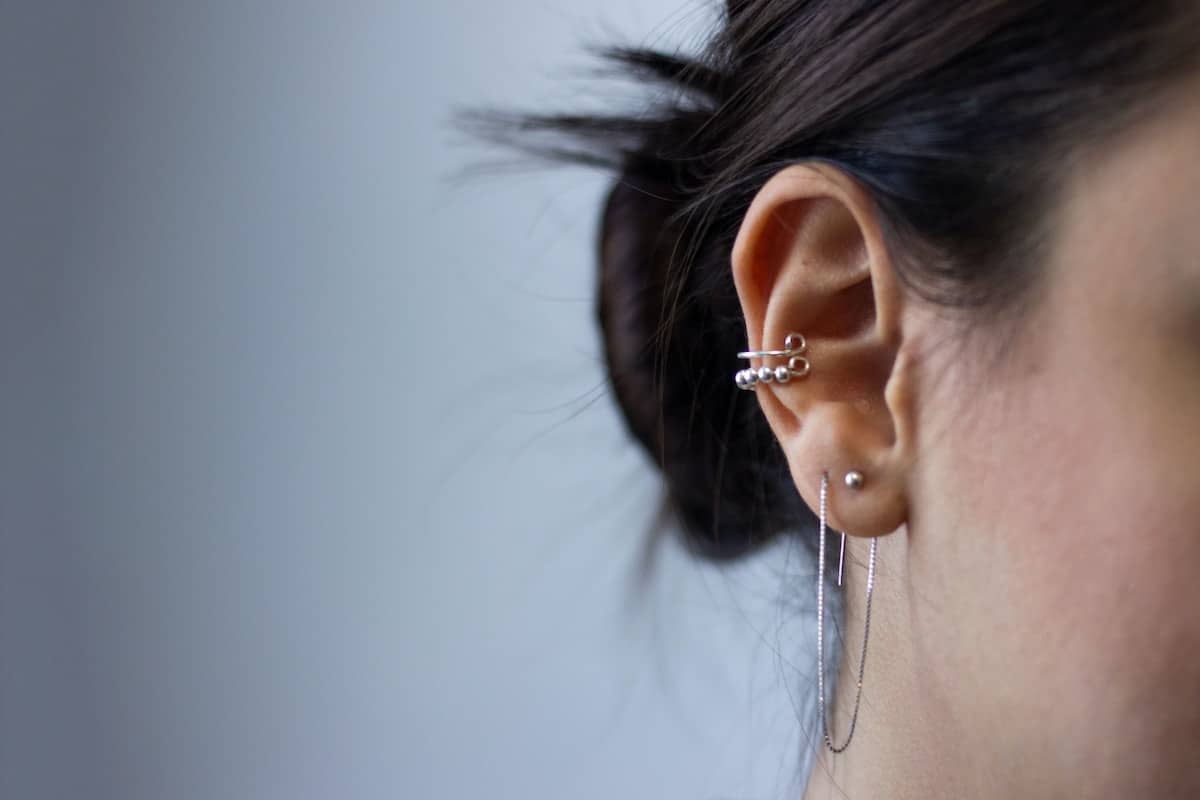Table of Contents
Piercing your ears can be an exciting and transformative experience, but it’s essential to take proper care of your newly pierced ears to ensure optimal healing and minimize the risk of complications. This comprehensive guide provides valuable tips and advice on how to care for your freshly pierced ears. We will cover cleaning instructions, recommended products, and potential complications to watch out for during the healing process.
Understanding The Healing Process
When you get your ears pierced, it’s crucial to understand the stages of the healing process to provide appropriate care. The time it takes to heal depends on where the piercing is, the person, and how they take care of it afterward. Generally, the initial healing phase can take anywhere from 4 to 8 weeks, followed by a more extended period of complete healing.
Cleaning Instructions
Proper cleaning is vital for preventing infection and promoting healing. Here are the recommended cleaning instructions for freshly pierced ears:
- Before you touch your piercings, wash your hands well with antibacterial soap.
- Cleanse the pierced area twice a day using a saline solution or a saline wound wash. Avoid using alcohol, hydrogen peroxide, or harsh chemicals as they can irritate the piercing.
- Avoid rotating or twisting the jewelry during the cleaning process, as it can cause irritation.
- Pat dry the area with a clean, disposable paper towel or let it air dry.
Recommended Products For Aftercare
Using appropriate products during the healing process can contribute to the successful recovery of your newly pierced ears. Here are some recommended products:
Saline Solution: Opt for a sterile saline solution or saline wound wash, which can be easily found at drugstores. These solutions provide a gentle and effective cleaning method.
Non-Iodized Sea Salt: If you prefer a natural remedy, you can create a saline solution at home by mixing non-iodized sea salt with warm water. Ensure the mixture is properly diluted before using it.
Cleaning Solutions Or Sprays: There are specific piercing aftercare solutions or sprays available in the market. These products are designed to aid in the healing process and provide a convenient cleaning option.
Potential Complications And When To Seek Help
While ear piercings generally heal without complications, it’s essential to be aware of potential issues that may arise. Here are some complications to watch out for:
Infection: Signs of infection include increased redness, swelling, persistent pain, excessive warmth, and the presence of pus. If you suspect an infection, seek medical advice promptly.
Allergic Reactions: Certain metals used in jewelry may cause allergic reactions in certain individuals. If you notice persistent itching, redness, or a rash around the piercing site, consult with a professional piercer or a healthcare provider.
Keloids Or Hypertrophic Scars: In some cases, the body’s healing response can lead to the formation of keloids or hypertrophic scars. These are raised, thickened areas of scar tissue. If you notice abnormal scarring, consult a healthcare professional for appropriate treatment options.
Migration And Rejection: Sometimes, the body may perceive the jewelry as a foreign object, leading to migration or rejection. Signs of this include the jewelry shifting significantly or being pushed out of the piercing hole. Seek professional advice if you suspect migration or rejection.
Additional Tips For Optimal Healing
In addition to cleaning and monitoring for complications, here are some extra tips to promote optimal healing:
- Avoid touching your piercings unnecessarily, as it can introduce bacteria and cause irritation.
- Avoid swimming in pools, hot tubs, or bodies of water during the initial healing period to minimize the risk of infection.
- Avoid sleeping on your newly pierced ears to prevent pressure and irritation.
- Avoid changing or removing the initial jewelry until the piercing has fully healed unless advised by a professional piercer.
- Wear loose-fitting clothing and avoid items such as hats or headphones that can rub against the piercing.
Conclusion
By following the cleaning instructions, using recommended products, and monitoring for potential issues, you can support the healing process and enjoy your newly adorned ears safely. Remember, if you have any concerns or experience complications, always seek professional advice from a piercer or healthcare provider. With proper aftercare, your ear piercings will heal beautifully, allowing you to showcase your unique style and personality.
Image Credit: Photo by Kimia Zarifi on Unsplash


